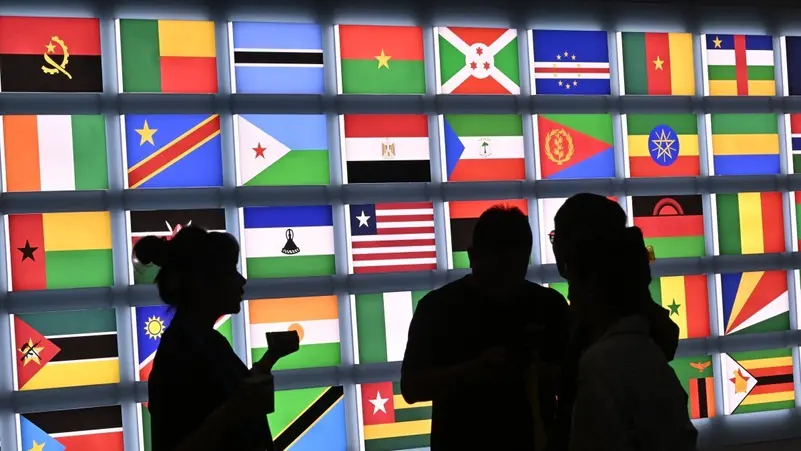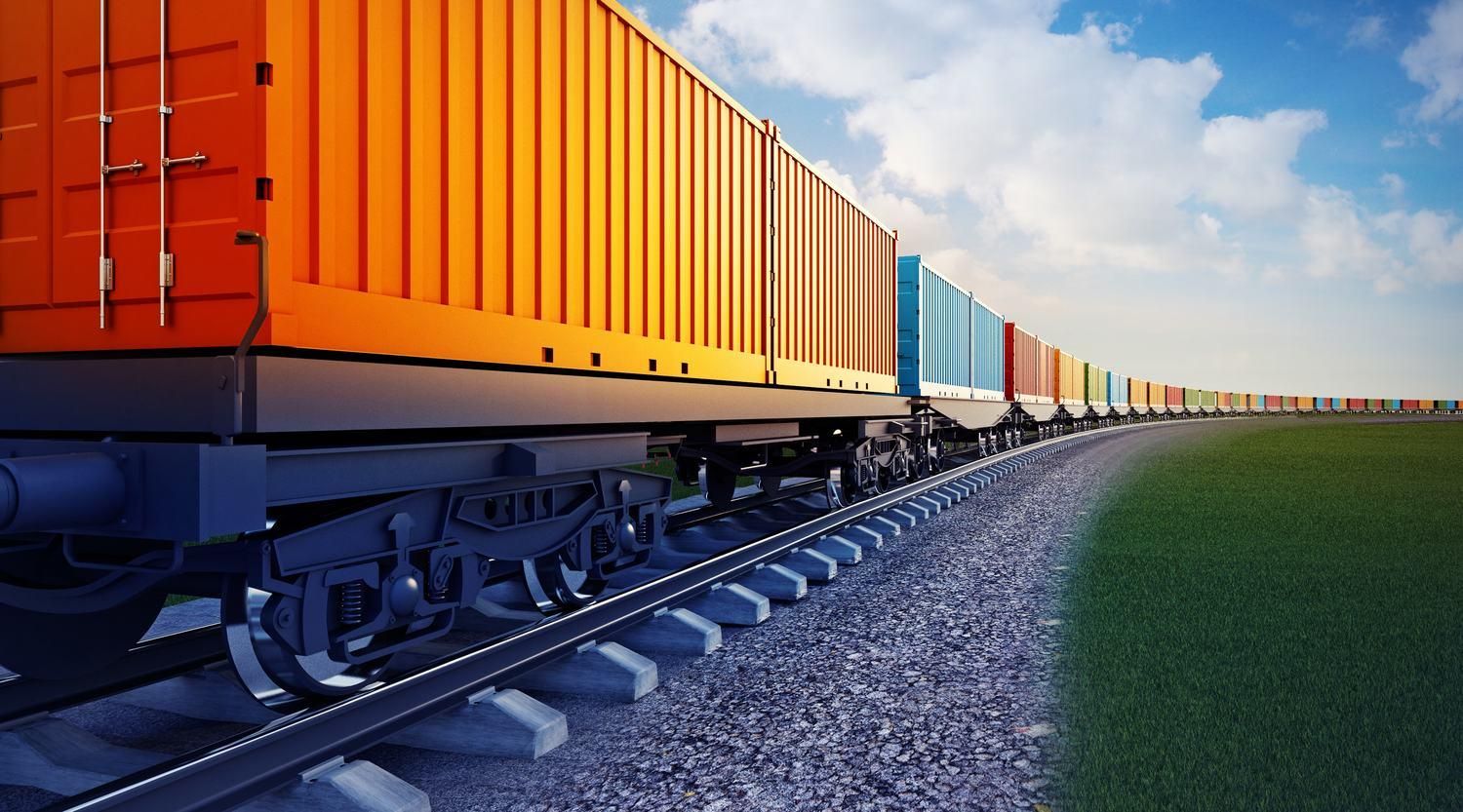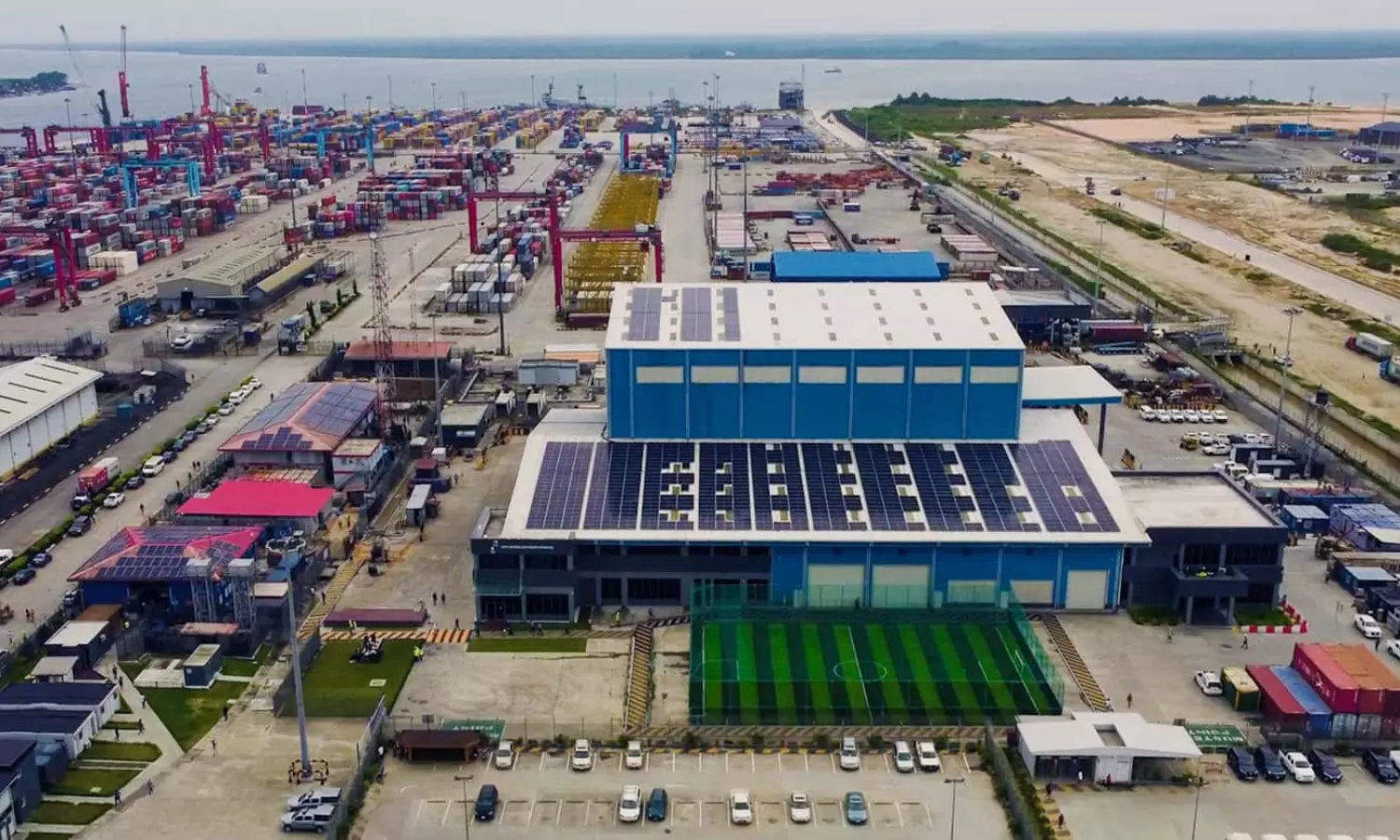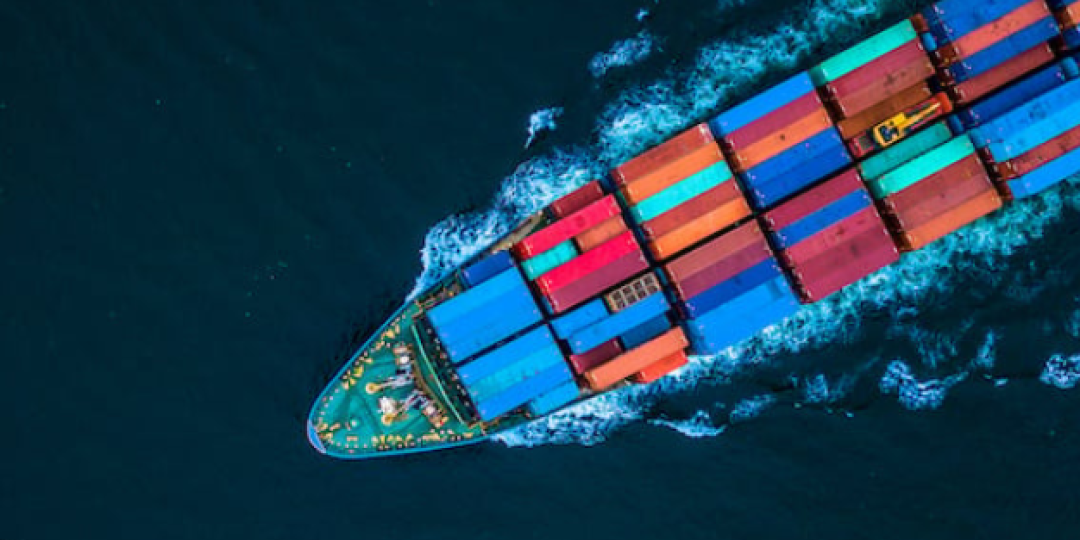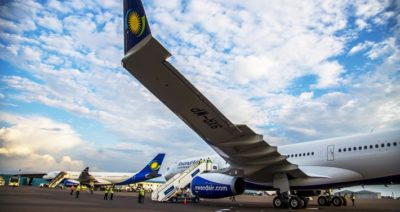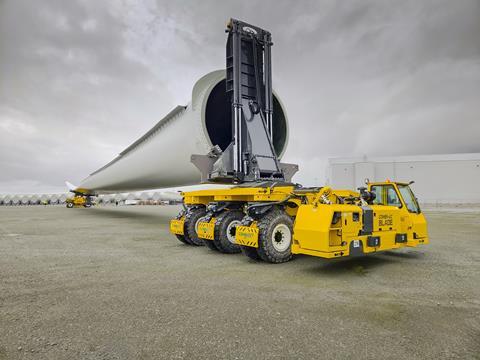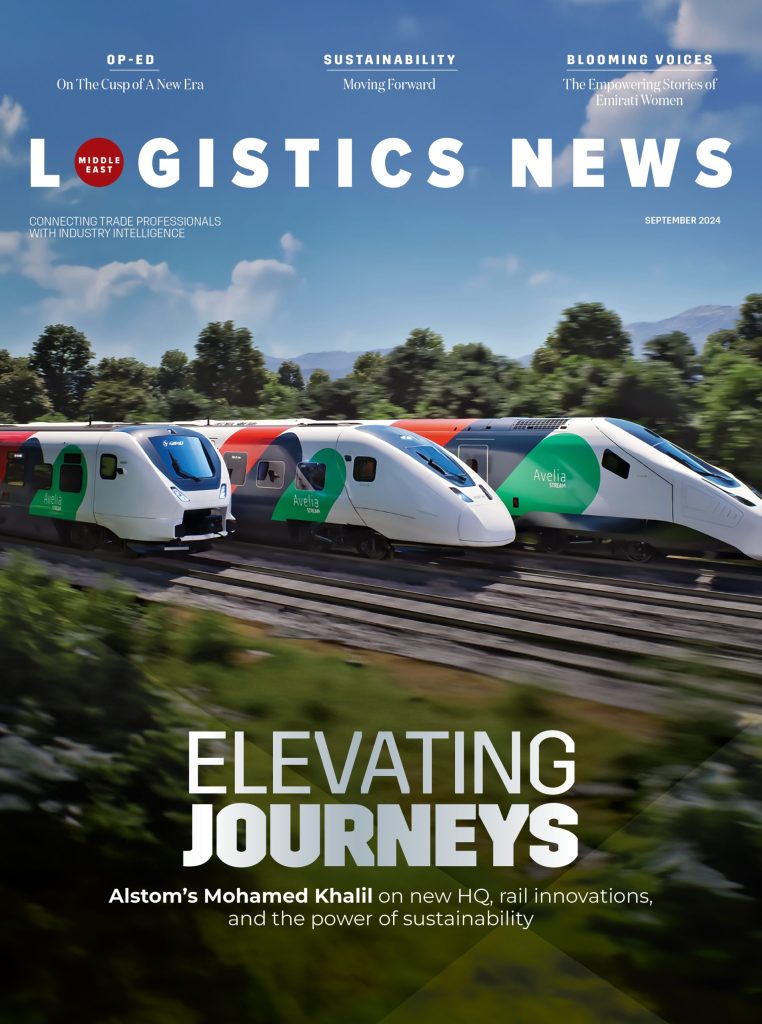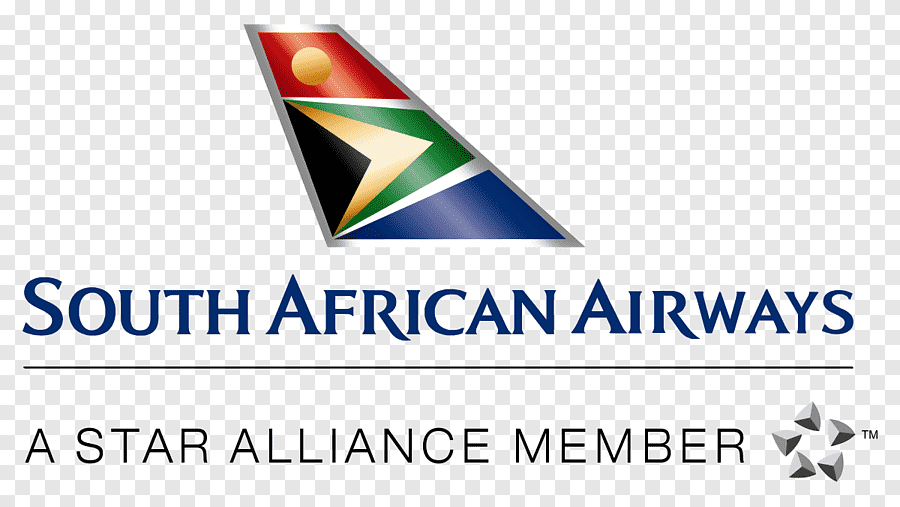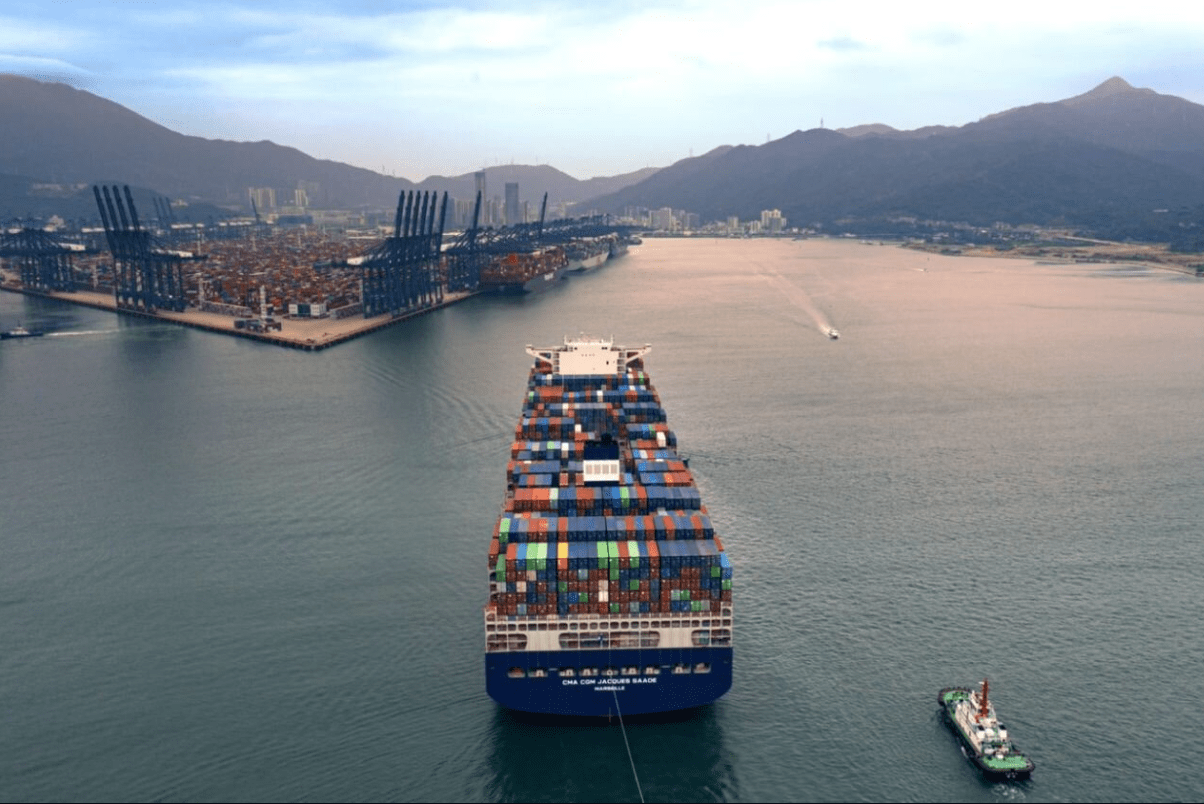Logistic

SA needs a logistics fix
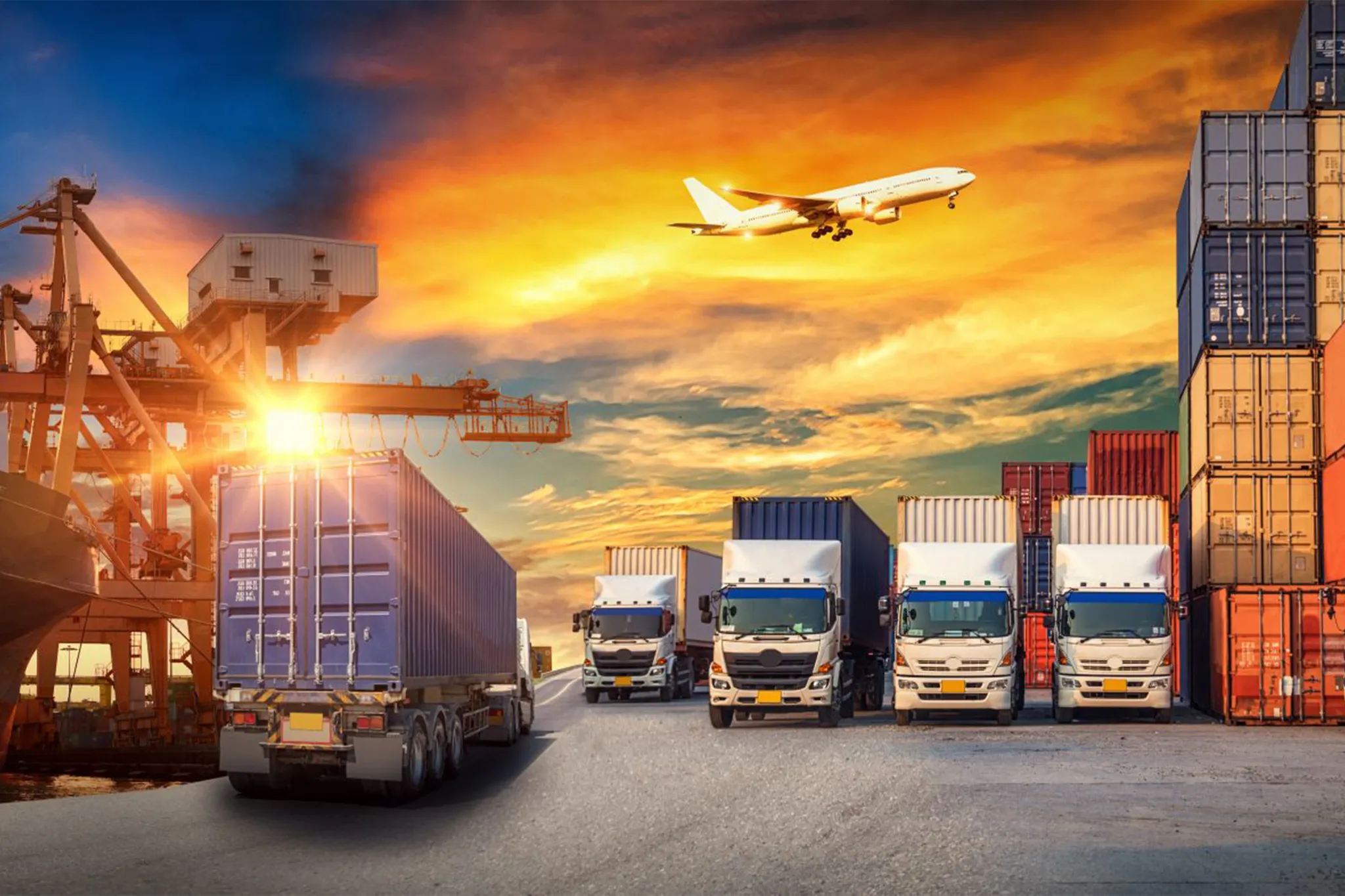
JEREMY MAGGS: On this edition of FixSA I’m joined by Hennie Heymans, who is chief executive officer of DHL in South Africa. It is a big company – and as a leader of one of the most complex and fast-paced sectors in South Africa, I think it is fair to say that Hennie has a unique perspective on the difficulties, the challenges and also the opportunities in South Africa’s logistics landscape.
I want to dive into how the sector is navigating the challenges, and also explore his thoughts and what is needed to move the logistics industry forward. And if you move the logistics industry forward, by definition I think you’re going to move the needle as far as fixing South Africa is concerned.
So Hennie, a very warm welcome to you and thank you so much for talking to us. Maybe as a starting point, give me a sense of the logistics industry in South Africa right now, its kind of position and the crucial role it plays in the economy. I wonder sometimes if we tend to underestimate its value.
HENNIE HEYMANS: Thank you, Jeremy. If I start with your last point, I think it’s quite an important point because probably in its most succinct form logistics makes the world go round.
In other words, without logistics, economies simply don’t function.
So I think you are right when you say sometimes people don’t quite appreciate the role of logistics in the bigger scheme of things.
In so far as South Africa is concerned, I think we are probably all well aware that infrastructure is just a major challenge for us in South Africa.
Our rail system is non-functional, our ports are not efficient, and as a result of both our roads are very congested.
I think everybody is aware of the NLCC [National Logistics Crisis Committee], and if you look at their latest report the congestion in our supply chain has significant implications. It leads to an increase in costs. There’s a delay in delivery times. Of course you sit with reduced customer satisfaction – and there’s just an overall disruption.
For me, all of those things combined makes us less favourable from a foreign investment point of view. So that’s kind of my take on it for now, Jeremy.
JEREMY MAGGS: How have you then, as an organisation that is so critical to the moving cogs of this economy, been forced to adapt? What difficulties as well have you encountered in that respect?
HENNIE HEYMANS: Jeremy, it’s a really good question. I think first and foremost what it has done to the logistics industry is it has forced us to be a lot more agile. You’ve got to think a lot quicker on your feet, and you’ve got to be really nimble in order to react. So I think there have been a couple of things that we’ve done as an industry.
We’ve flexed our business a lot differently, and we’re flexing the mixture between road and air in specific.
And things such as the Internet of Things of course and digitalisation help a huge amount because you are able to react quicker as a result of that information that you have. You’re also able to be a little more accurate in the way that you plan, given the role that digitalisation plays.
But certainly with those changes comes a change in cost. I think that’s one of the things that we really need to be mindful of at a macro level.
For us in Africa and South Africa, our cost of logistics adds anything between 35% to 43% to the final cost of goods.
If you compare that to a Europe, where it’s between 3% and 5%, and the Americas where it’s also in single digits, it just reiterates that we have to do something dramatic in order to bring that cost down, because if we bring that cost down, we become more attractive from an FDI [foreign direct investment] perspective.
JEREMY MAGGS: That 35% is a dramatic figure in itself, Hennie. What do you need to do in order to bring that number down and make the change that you talk about?
HENNIE HEYMANS: We have to become more efficient in the way that we deal with logistics.
We have to fix Transnet, we have to fix our ports, and we have to become less bureaucratic. We have to speed up the way we do things.
If you look at South Africa and the role that it has to play and can play in Africa, there’s an enormous possibility from a gateway perspective, but we’ve lost out and we continue to lose out because of our inefficiencies.
So those are the other key things, Jeremy. We’ve got to get our ports to work. We’ve got to get our railway to work and we’ve got to take away some of the bureaucracy. And we have to take on our responsible role as a gateway into the rest of Africa, because we can and we should.
JEREMY MAGGS: And Hennie Heymans, in that respect, are you seeing any encouraging signs or are you still frustrated?
HENNIE HEYMANS: I’m incredibly positive at the moment, Jeremy, with the NLCC and the work that’s being done.
Their public and private partnerships have come back onto the radar. And I must say we have seen some fantastic results as a result.
If you look at Eskom and what’s been happening at Eskom I certainly think – actually not think but know – that the public private/partnership through the CEO pledge and commitment that we’ve seen has made a massive difference. We’ve seen that. We’ve had stability in the power utility for over 200 days. I think that’s a fantastic story and perhaps we should talk a little bit more about that story and more often.
I think we are too quick to focus on the negatives, but there is some absolutely fantastic work going on in the background with regard to public/private partnerships in this country.
That’s a long way to say I’m incredibly positive about the changes, I’m incredibly positive about government’s commitment towards that. I serve on the logistics crisis committee. I see the commitment; I see the changes that are coming. It’s a great story. Jeremy.
JEREMY MAGGS: I want to take you back to a word you used a little earlier, and that was the word ‘nimble’. From a leadership perspective, how do you make sure that a company is moving quicker, is more nimble – because the sense I’m getting from you is that if we become more adept, not only in your sector but generally in business in South Africa, if we’re able to pivot in a better way, things will be a lot easier? As a leader of an organisation that preaches that gospel, what are you doing in that respect?
HENNIE HEYMANS: I think it’s about the attitude with which you approach these challenges. You have to have a can-do spirit and an approach to it.
You have to have an approach of a little bit of entrepreneurship because being nimble often requires one to think outside the box and outside the prescribed set of rules.
And therefore a spirit of entrepreneurship is really important.
And then just from an organisational point of view, it’s that will to win. You have to have the will to win because, if you have the will to win, you will apply an entrepreneurial spirit and approach to these things.
And then, just for us, as we are very much a purpose-driven organisation at DHL, we talk about making the world a better place by connecting people and improving lives. If people understand that role, and if people understand that everything that I do today can make a difference and can make the world a better place, you have a very different attitude and you have a very different approach – which then leads to being nimble and adaptable a lot better.
JEREMY MAGGS: Hennie, we’ve gone through some very dark times in South Africa of note, both literally and figuratively. You talk about the will to win. I absolutely understand that, and so many of my guests on this particular programme have said exactly that. But how do you make sure that you keep that will to win when things around you are very turbulent, very difficult, because, again, that is the essence of good leadership?
HENNIE HEYMANS: Jeremy, I think we all have a choice. We have a choice of sitting around a barbecue complaining about everything that’s going wrong, or we have a choice to ask what the contribution is that I can make to make this a better country, to make things better – not just for me but for the generations that come after us.
I, like 134 other CEOs, have decided we are going to do the latter. We are going to contribute our skillset and our experience to power back into this country which we love and where we operate, and we’re going to make a difference in that contribution.
So I think the point simply is this – that [not] sitting and complaining about everything that’s wrong we can contribute our skillset and our experience and help make it better and take hands in that Ubuntu spirit and actually work to make this country a better country for all.
JEREMY MAGGS: But having said that, Hennie, it’s okay, isn’t it, to be frustrated sometimes. even to be angry?
HENNIE HEYMANS: One hundred percent, because it means that we want better. It is what we do with that energy of the frustration to sometimes get angry. It’s about how we apply that energy – and say let me apply that energy in a positive manner and contribute and make it better, because every single one of us has something that we can contribute. And if we contribute it in a positive manner, we’ll collectively help build a better country.
JEREMY MAGGS: Let me get back to the business that you operate in. You spoke about South Africa being a gateway, as far as the region is concerned. If this country could develop a top-tier logistics hub, what qualities are needed that would make it truly world class? And, if that happens, it goes a long way to fixing the country.
HENNIE HEYMANS: Jeremy, for us in our space I think we’ve got to start with how goods come in and out of a country – and that comes to our customs departments and officials. We know that there’s a shortage of skills. So I think that development of a skillset there is of paramount importance.
The suggestion I made the other day, just as a matter of interest, on a panel that I served on and had a conversation with some of [the members], if you think about what happens to a medical student in our country, they finish their studies and then have to do a community service here. What if we do the same across other skillsets – engineers, customs and clearing, for example? I think that’s one way of stimulating and accelerating the skill shortage that we have in that regard. That’s the first thing.
So I think if you look at skills, we’ve got to really pay attention to how we get that skills development amplified and accelerated.
And then infrastructure – we have to get the infrastructure right. You can have all the skills in the world, but if the infrastructure doesn’t support it, well, we are not going to achieve that end goal.
And then it’s around efficiencies. We have to become more efficient as a country.
JEREMY MAGGS: Let me take you back to that community service idea, if I can. It’s an interesting thought, but shouldn’t companies be doing this anyway, more assertively just through better internship?
HENNIE HEYMANS: You absolutely have a point. The issue that we have is to get those programmes sustainable. Let me give you an example. We have the YES programme in South Africa.
The YES programme was meant to generate a million jobs. To date it has generated only about 156 000 jobs. What are we doing now? Now we want to have a different programme, and I think that’s where we often go wrong.
We cannot change an entire programme every time the output doesn’t deliver. What we should rather do as a collective is to ask what has happened that the YES programme hasn’t delivered? What is it that we can tweak, rather than throwing everything out of the window and starting afresh again?
We have to have programmes that are sustainable, while understanding that the initial design might not be the perfect design but then it’s about tweaking the design rather than every time saying let’s start a new programme or new initiative.
JEREMY MAGGS: On this [episode of] FixSA I’m in conversation with Hennie Heymans, who’s chief executive officer of DHL South Africa. Hennie, let’s continue the conversation.
E-commerce is surging. It’s all about tech solutions right now. In your space sectorally what are you learning from this shift and how are you meeting the rising demand for speed and flexibility because, again, if there is a better understanding and a better takeup of e-commerce effectively and efficiently, again it’ll go a long way to fixing problems that we have.
HENNIE HEYMANS: Yes, Jeremy, I think e-commerce growth is off the charts at the moment. And the future is truly really bright for Africa and the logistics around e-commerce – both in- and outbound. What we are seeing that’s helping to drive this growth is digitalisation, digital payments and just the whole thing around the social side of e-commerce.
Now globally we are actually seeing a move towards quick commerce, that on-demand quick and app-driven delivery for the fast-moving consumer goods, particularly around the small electronics and fashion and so on.
For us, it’s hugely exciting. There’s a massive appetite – not just in South Africa, but on the continent. And again, this is where technology comes in, in quite a big way. At DHL, for example, we’ve made use of on-demand delivery, which allows a customer to select a convenient delivery option, or lockers, or a retail point where they can go and pick up.
So again, being agile and nimble is paramount here, because this e-commerce industry is changing really, really quickly.
But it’s a wonderful opportunity for us not just in South Africa, but Africa as a whole.
JEREMY MAGGS: How difficult or easy is it in your business to think innovatively and creatively? So many chief executives that I’ve spoken about or spoken to on this podcast have said that underpins everything that they do, but often the day-to-day running of the business gets in front of that and prevents them from being a little bit more open-minded.
HENNIE HEYMANS: Great question, Jeremy. Thank you. I guess as your guests have indicated, sometimes you do get distracted just because business happens every day and it’s not possible every day to think about it.
So we’ve gone a slightly different route in that we’ve actually set up a division that just looks at that for us. We have what we call innovation centres.
And our teams at these different innovation centres are placed all around the world.
Their sole job is to try and look and gaze into the crystal ball of the future and say, what things, what developments, are going to make things better and more efficient for us and allow that nimbleness that I’ve been talking about?
So for us, for example, we’ve got an innovation centre in Dubai, and we look at things such as temperature-controlled mechanisms, for example, for when we send perishables, to make sure we can monitor them real time and avoid waste.
For example, we also use some of those tracking mechanisms to say, if there’s a delay somewhere in the world, how can we reroute those shipments? It sounds simple, but it’s actually quite complicated. If you’ve got something on its way from the East, for example, and the hubs run out of capacity in the Middle East, that ability to then react through innovation is really what kind of keeps that entrepreneurial spirit well and alive within DHL.
JEREMY MAGGS: Hennie, if I said to you that I was giving you the job of Minister of Logistics in South Africa and you’ve got a month to start fixing the problem, I’ve got two questions. In fact, three questions. Would you want the job? Second of all, where would you start, [chuckling] and thirdly, who would you call to help you?
HENNIE HEYMANS: Jeremy, that’s a great question.
Would I want the job? I would probably give it a go. The adventurer in me says I would definitely give it a go.
One has to start with getting the basics right. I think public-private partnerships will form an absolute key part of it. I think privatisation would be another big topic that would be on the agenda.
And then, finally, it’s to kind of just focus on the basics around the efficiencies.
That’s probably where I would start, Jeremy. But a great question. And now I haven’t been offered the job!
JEREMY MAGGS: And who would you call to help you? Or it doesn’t have to be an individual, but what kind of people would you want sitting around your table?
HENNIE HEYMANS: We have fantastic leaders in this country, Jeremy, and I would probably call on a few bankers because we know that there would be enormous investment required. So I would definitely knock on the door of a few bankers.
I would definitely call on our automotive sector, because they play such an important part in our economy and in providing jobs and making us an exporter.
So I would certainly call on some players in the automotive industry. And then just some of our really, really strong leaders from a service-industry point of view. Those are probably the people I would surround myself with in that boardroom.
JEREMY MAGGS: Just back to the sector itself, Hennie, we know for the past couple of years, ever since the pandemic, that there has been global supply-chain disruption. To what extent has that impacted on your operations, and what lessons have you learnt from those difficulties in order to make your business and the sector more future-fit?
HENNIE HEYMANS: Jeremy, that’s a fantastic question, and certainly Covid has disrupted logistics in the way that we [have] new logistics. For example, we had to very dramatically and very quickly change the hubs that we used around the world.
If you think about the war that broke out in Europe – that suddenly meant that your aircraft couldn’t fly over that air space.
And then it becomes quite technical in terms of the hours and the fuel and so on and so forth. Therefore we had to change the regional hubs – in other words, where we hub and reconnect with other airlines.
So we’ve certainly learnt that you have to have a lot more flexibility. Because we have our own airline we were able to adapt really quickly.
We also learned that with the approach that we took 25 years ago to have our own airline, we probably couldn’t have scripted that better during Covid because the big players that survived and thrived during Covid are those who had their own airlines.
For us as DHL in Africa, that was of particular importance because we are the only player that’s got an airline in Africa dedicated to that. So that helped to keep Africa connected to the world and to keep the world connected to Africa.
And then the other buzzwords that have crept in as a result of that are around offshoring and nearshoring and friendly shoring.
We saw, especially again during Covid, where we had none of those onshoring and nearshoring close to the continent, transit times got negatively impacted and everything took longer.
The moment it takes longer it becomes more expensive and just has an incredible knock-on effect.
So those are some of the key lessons that we’ve learnt.
Part of how we are trying to evolve around that, for example, is through some of these public-private partnerships where we talk to certain governments and say, why don’t we make your country more attractive, so we can bring in some of that onshoring or nearshoring of the big companies, the international companies, to our continent – not just for the sake of our continent, but it also means that the continent overall can benefit from that change in the logistics field.
JEREMY MAGGS: Drawing on your own experience, one of the other observations that I’ve gleaned from this series of interviews is that there’s often a disconnect between leadership and the actual process itself. So drawing, Hennie, on your own experience, how close are you to the trenches of your business? Do you walk the warehouses? Do you look at the vehicles? Do you engage with the airline that you run – because again, if a leader is close to the problem, it’s going to be a lot easier to solve?
I’d suggest that all too often that distance is very preclusionary in terms of fixing the country.
HENNIE HEYMANS: Jeremy, at DHL we have a philosophy where we say that every leader has to spend 70% of her or his time in the field with our people.
So in our business and in our context it means that we have to go out on a courier run and see what our couriers do every single day. We’ve got to see if their vehicle is fit for purpose. Do they have everything that they need in order to execute their job in the best possible way?
Part of that 70% is also to sit on a call to a call centre, or to go out on a sales call with our salespeople. So we have a very, very clear approach and understanding of that.
The philosophy is quite a simple one. We believe that everything will happen through our people. If we have a strong and a motivated workforce, we absolutely know that that will lead to great service quality.
If you have great service quality through your people, you will have loyal customers, because customers want to deal with an organisation that is not just efficient, but friendly and warm and receptive and agile. And we know if we do that, well then we’ll have a good business model.
So, in summary, we are very clear that we have to spend 70% of our time in the field with our people in order to make sure that our business not only understands what they require, but that we understand what our customer requires from us. That’s really the only way to discover that.
JEREMY MAGGS: Drawing to the end, I have one or two more to ask you. Important in your organisation, I would imagine, is sustainability, which is increasingly critical in logistics. Are there initiatives that your industry is adopting to minimise its environmental footprint?
HENNIE HEYMANS: Yes, Jeremy, we are quite serious about the environment and we are equally very understanding of the role that we play in CO2 emissions, being in logistics.
So we’ve made a huge commitment globally to have zero emissions by 2050. And, as a result, probably our biggest investment in the sector specifically is around sustainable aviation fuel.
And in fact, we are very proud of the fact that DHL as an airline is the biggest user of sustainable aviation fuel in the world at the moment. Hundreds of millions of euros are getting spent on this.
But we’re also able to bring that to our customers through a programme called GoGreen Plus, where customers have the opportunity to pick that and in doing so help reduce their inset as well. So that’s the second element.
The third element of it is around carbon-neutral buildings. For example, for us our building in Midrand is carbon-neutral, an enormous investment for us. It’s actually our very first carbon-neutral building in Africa.
And then of course you look at your hybrid vehicles, electrical vehicles, solar energy and so on and so forth.
So it is very high on our agenda. We’ve spent not just a lot of time on it, but we also spent real money on these efforts.
JEREMY MAGGS: Let me finish this conversation with a philosophical question. You’ve outlined to me what the problems are, how they affect your sector, and what the fix is. So Hennie, in conclusion then, how will we know what is the marker of success in this country? How will we know when we’ve gone sufficiently far in order to say South Africa is fixed? Do you have a view on that?
HENNIE HEYMANS: I do, Jeremy, and I would say the first one people can already take as a positive – and you can see it and you can hear it when you talk to business people.
It is the fact that we’ve had over 200 days of uninterrupted power supply. I think that’s an absolutely good sign to say the public-private partnership initiative is working, it is delivering as we see a change.
And there are already some changes happening in Transnet, positive changes – we’ll see that that will improve. The moment that improves, we will see a shift in terms of the competitiveness of South Africa.
And for me, the final tick in the box would be if, because of those changes, we see more foreign direct investment coming into this country, we’ll see the rand strengthening, we’ll see a slowdown in our inflation, and we’ll just see an overall better mood in the country.
One of the things that this initiative is tackling is also around security. So I think we all want to see that being better and improving as well.
But the signs are there, Jeremy. I’m very upbeat. I can tell you there’s a load of other CEOs who share the same positive view that I do.
And it’s there. Let’s keep the faith and let’s all do our bit to contribute to the betterment of this country.
JEREMY MAGGS: I think that’s a good place to put a punctuation point on this conversation. Hennie Heymans, chief executive officer, DHL South Africa, thank you for joining me on this edition of FixSA on Moneyweb.



